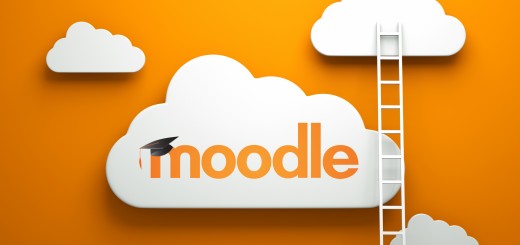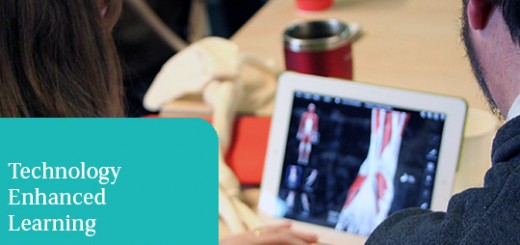SEDA Supporting Technology Enhanced Learning 2017-18
Supporting Technology Enhanced Learning (STEL) is one of the named awards available through SEDA’s Professional Development Framework. It is relevant to all staff involved in using digital and other educational technologies (including discipline specific technologies) as part of their professional work, where there is a focus on enhancing teaching and student learning, or supporting the development of teachers or other staff.
Aims
- To support individuals in the effective use of educational technologies, including technology enabled approached or interventions in supporting and/or enhancing learning
- To recognise these professional achievements
- To advance professional practice by promoting scholarship in the use of educational technologies, including evaluation, professional reflection and reporting
- Enhancing student learning, particularly by enabling greater autonomy, creativity, flexibility and widening opportunities
- To encourage the development of learning communities sharing the SEDA professional values
- To facilitate the sharing of effective practice within and across institutions.
Audience
This award supports and credits the continuing professional development of any individual who is actively involved in educational technologies within their own practice in higher education including teachers, educational technologists, learning professionals, and educational developers. It promotes the effective use of current and emerging technologies to support and enhance learning in a rigorous, scholarly way. Although the context for the application of these skills and competencies is the use of educational technologies, the skills and competencies themselves are similar to those required in other teaching and development activities. The award does not directly accredit technical skills.
The programme will contribute to participants’ professional development and/or academic profile. STEL will enable individuals and teams to develop effective use of educational technologies, and promote dissemination of practice between colleagues and across subject disciplines. They programme will apply principles and scholarly enquiry to the context of current learning and teaching, learning support, and other related professional activities.
Values
Award recipients will have shown how their work is informed by the SEDA Values:
- Developing understanding of how people learn
- Practicing in ways that are scholarly, professional and ethical
- Working with and developing learning communities
- Valuing diversity and promoting inclusivity
- Continually reflecting on practice to develop ourselves, others and processes.
Core Development Outcomes
Award recipients will be able to:
- Identify their own professional development goals, directions or priorities
- Plan for the initial and/or continuing professional development
- Undertake appropriate development activities
- Review their development and their practice, and the relations between them
Specialist Outcomes
Additionally award recipients will be able to:
- Justify the selection of educational technologies, or technology-enhanced approaches, to support learning within a specific context or for a particular educational purpose
- Review the opportunities and constraints of the chosen technologies or technology-enabled approaches within the specified context
- Implement the selected technologies or technology-enhanced approaches within the specified context
- Evaluate or reflect upon the effectiveness, and draw implications for our own professional practice
This newly validated SEDA STEL programme will allow you to explore the current themes in technology enhanced learning in Higher Education, by combining pedagogic theory and accounts in the literature of successful uses of learning technology, while addressing the complex, multifaceted and situated nature of teacher knowledge.
The award will also identify and describe emerging technologies likely to have an impact on learning, teaching, assessment and creative inquiry in higher education, based on the interrelationships amongst at least three areas: technology, theories of learning and issues of educational practice.
Indicative Content & Key Dates
| Session/Topic | Dates 17/18 |
| Session 1 – The Digital Practitioner In this session, participants will explore the concept of digital capability, map their own online engagement, and identify their own TEL-related professional development goals, directions or priorities. |
22/01/18 2pm-4pm |
| Session 2 – Inclusivity & Accessibility In this session, participants will be introduced to issues related to accessibility and inclusivity, and explore how and why the use of technology to enhance learning, teaching and assessment should be considered and appropriate. |
08/02/18 1pm-3pm |
| Session 3 – ePedagogy & Educational Practice Here, participants will explore how combining traditional learning theories, such as constructivism, cognitivism & behaviourism, with contemporary theories such as connectivism, gives us the foundation on which to develop successful models for online & blended learning. |
21/02/18 10am-12pm |
| Session 4 – Collaborative & Social Media This session considers ways in which participants might use range of internet-based applications to create, co-create, share and interact with information, as well as how the effective use of social media can deliver considerable benefits across all aspects of learning, teaching and assessment activities. |
05/03/18 2pm-4pm |
| Session 5 – Creating Online Content In this session, participants will learn how to meaningfully incorporate technology into learning, teaching and assessment through careful planning and creation of online learning resources and activities. |
22/03/18 1pm-3pm |
| Session 6 – Audio & Video for Teaching, Learning & Assessment In this session, participants will explore how and why the use of video, audio & multimedia has become more mainstream in HE in recent times, the pedagogic benefits of video content, and ways you could use video for your teaching, learning and assessment. |
20/04/18 10am-12pm |
| Session 7 – Electronic Management of Assessment Participants will explore the issues related to using technology to support the assessment lifecycle, from the electronic submission of assignments to marking and feedback. |
03/05/18 1pm-3pm |
| Session 8 – Contemporary Issues in TEL In this final session we will identify and describe trends, challenges, developments, innovations and emerging technologies likely to have an impact on learning, teaching, assessment and creative inquiry in higher education, and in particular at YSJ. |
16/05/18 10am-12pm |
When you express an interest in participating in the SEDA award, you will be invited to a brief informal discussion with the programme leaders. This process will enable you and the programme leaders to assess whether the programme is right for you, rather than whether you are right for the programme.For more information about the award, or to express an interest, please contact TEL@yorksj.ac.uk.
Phil


